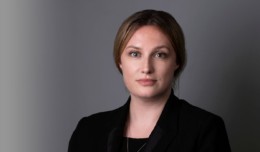Forensic Science – codes of practice and joint statements
Two new publications were issued by the Forensic Science Regulator (“FSR”) in February 2021.
(i) The Codes of Practice and Conduct for Forensic Science Providers and Practitioners in the Criminal Justice System updates the existing Codes. The most significant part of this sixth edition is perhaps its preamble, which states the purpose of the Codes is to set down standards which should be adhered to by all practitioners, and further sends this blunt message: “Some have equated the current lack of statutory enforcement powers for the Regulator with an assumption that compliance is voluntary. That is not the case and any non-compliance with the Code of Conduct must be declared in statements.”
The message will serve as a warning to practitioners, and is also potentially useful to those seeking to challenge expert forensic science witnesses. Given the stark reminder of the imperative to comply with its contents, or declare non-compliance, any failure to do so may now seriously undermine the reliability and credibility of expert evidence. This guidance is likely to be a useful tool in cross-examination where such failings have been identified.
Other developments within the Codes include the following:
-
- A person preparing a summary streamlined forensic report (“SFR1”) who is aware of information that might meet the test for disclosure, should communicate it to the investigator [28.3.1(b)]
- A new section on electronic information security codifies the manner in which such information should be stored and managed [23.3]
- There is reinforcement of the principle that a forensic unit is responsible for the quality of the work of subcontractors, and must keep records of the agreements between them and the subcontractors’ adherence to the Codes [12.1.2].
(ii) The first issue of the Guidance on Joint Statements Under Part 19.6 of the Criminal Procedure Rules was also published on 15 February 2021. CrimPR 19.16 provides that where multiple parties seek to introduce expert evidence the court may direct the experts discuss the issues and prepare a statement on matters of agreement and disagreement. The new FSR guidance on the approach to these discussions includes the following:
-
- Before the discussions begin in earnest, the experts should prepare a list of all of the issues addressed in expert evidence relevant to the case [7.2.2];
- The discussion is between the experts and “there is no reason for anyone else (e.g. solicitors or police) to be involved. Indeed, other parties should not be present.” [7.2.4]
- Discussions should not be recorded but notes should be kept [7.2.5];
- The purpose of the discussion is to identify and record areas of agreement and disagreement and the reasons for the same [7.2.6];
- The purpose is not to debate the evidence or seek consensus, but if discussions to clarify and explain disagreement results in consensus, that is worthwhile [7.2.7].
Parts of this guidance appear to contradict the Criminal Practice Directions. 19C.4 states parties must discuss and, if possible, agree an agenda which helps to focus the issues to be discussed. 19C.5 provides that if the legal representatives attend the discussion, they should not intervene expect to answer questions from the experts or advise on the law. The CPD clearly envisage the presence of legal representatives and that they may assist with preparation, whereas the FSR guidance specifically excludes legal representatives from these areas. It will be interesting to see how strictly forensic scientists interpret this guidance in practice, and whether it results in a refusal to allow legal representatives to be present during discussions or assist with setting agendas.
Categories: News


